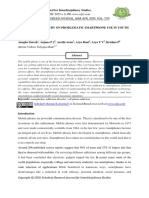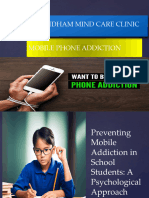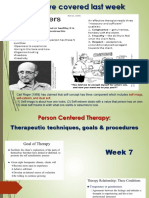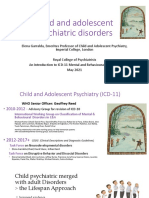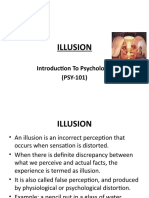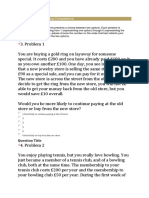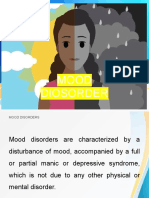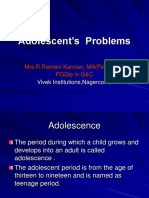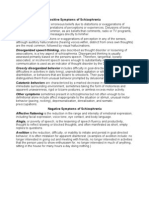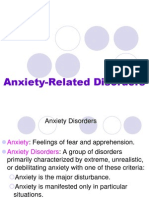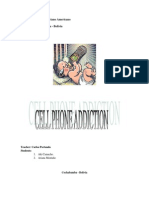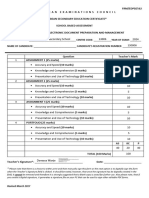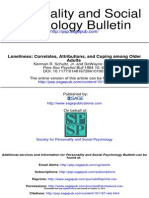0% found this document useful (0 votes)
237 views12 pagesNomophobia: A Campus Wake-Up Call
Nomophobia is an irrational fear of being without one's mobile phone. While the events people fear are not unlikely, the degree of discomfort felt at being separated from smartphones is irrational. The rise of smartphones has provided constant internet access but some individuals become addicted. Signs of addiction include loss of sense of time when using phones and relationship problems from neglecting offline relationships. Physical effects include digital eye strain, neck problems, and increased risk of accidents from distracted driving. Psychological effects are sleep disturbances, depression, anxiety, and obsessive compulsive behaviors regarding phone use. A campaign to raise awareness of phone addiction on college campuses used posters, an eye drop giveaway, and social media to encourage limiting phone use.
Uploaded by
Shrishti AgarwalCopyright
© © All Rights Reserved
We take content rights seriously. If you suspect this is your content, claim it here.
Available Formats
Download as DOCX, PDF, TXT or read online on Scribd
0% found this document useful (0 votes)
237 views12 pagesNomophobia: A Campus Wake-Up Call
Nomophobia is an irrational fear of being without one's mobile phone. While the events people fear are not unlikely, the degree of discomfort felt at being separated from smartphones is irrational. The rise of smartphones has provided constant internet access but some individuals become addicted. Signs of addiction include loss of sense of time when using phones and relationship problems from neglecting offline relationships. Physical effects include digital eye strain, neck problems, and increased risk of accidents from distracted driving. Psychological effects are sleep disturbances, depression, anxiety, and obsessive compulsive behaviors regarding phone use. A campaign to raise awareness of phone addiction on college campuses used posters, an eye drop giveaway, and social media to encourage limiting phone use.
Uploaded by
Shrishti AgarwalCopyright
© © All Rights Reserved
We take content rights seriously. If you suspect this is your content, claim it here.
Available Formats
Download as DOCX, PDF, TXT or read online on Scribd
/ 12

